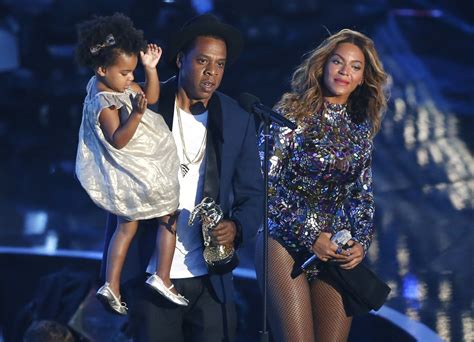
A Memorial Day social media post by country music icon Tanya Tucker, 73, ignited a firestorm of criticism online, with many accusing her of disrespecting the solemnity of the holiday and trivializing military service. The controversy stems from a video Tucker posted to her social media channels featuring her promoting her merchandise, specifically a tie-dye t-shirt, while wishing her followers a happy Memorial Day. The juxtaposition of commercial promotion with a day meant to honor fallen service members drew immediate and widespread condemnation.
Tanya Tucker’s Memorial Day message, posted on Monday, May 27th, quickly became a lightning rod for criticism. In the video, Tucker, known for hits like “Delta Dawn” and “Strong Enough to Bend,” encouraged fans to purchase her merchandise while simultaneously acknowledging the holiday. “Hey everybody, it’s Memorial Day,” Tucker said in the video. “I think it’s very important that we all remember the people who have fought for our freedom. Thank you, and God bless you. And go buy some tie-dye.”
The backlash was swift and severe, with many social media users expressing outrage over what they perceived as a blatant attempt to capitalize on a day of remembrance. Critics flooded the comments section of Tucker’s posts, accusing her of being insensitive, tone-deaf, and disrespectful to the sacrifices made by military personnel and their families. Many argued that using Memorial Day as an opportunity to promote merchandise was inappropriate and trivialized the significance of the holiday.
“How dare you use Memorial Day to promote your merchandise? This is disgusting,” one user commented on Tucker’s Instagram post. Another wrote, “Memorial Day is not about tie-dye shirts; it’s about remembering and honoring those who died for our country. Shame on you, Tanya Tucker.”
The controversy quickly spread beyond Tucker’s immediate social media following, with news outlets and online commentators picking up the story. Many criticized Tucker for failing to recognize the gravity of the occasion and for seemingly prioritizing commercial gain over genuine remembrance.
Tucker’s representatives have yet to release an official statement addressing the controversy. However, the video and associated posts remain active on her social media accounts. The silence from Tucker’s camp has further fueled the outrage, with many calling for a public apology and a more appropriate acknowledgment of Memorial Day.
This incident highlights the ongoing debate surrounding the appropriate use of holidays for commercial purposes and the sensitivities surrounding the remembrance of military service. While many companies and individuals offer Memorial Day sales and promotions, the line between honoring the fallen and exploiting their sacrifice for profit can be a delicate one. In Tucker’s case, the perceived insensitivity of her message appears to have crossed that line, resulting in widespread condemnation and calls for accountability.
The controversy also underscores the power of social media to amplify public sentiment and hold public figures accountable for their actions. In an era where every post and comment is subject to scrutiny, celebrities and influencers must be acutely aware of the potential consequences of their online behavior. Tucker’s experience serves as a cautionary tale about the importance of sensitivity and awareness when addressing sensitive topics, particularly those related to national holidays and military service.
The unfolding situation raises several key questions about the role of public figures in shaping public discourse and the responsibilities that come with having a large platform. As the debate continues, it remains to be seen whether Tucker will address the criticism and take steps to repair her image. The incident also serves as a reminder of the importance of thoughtful and respectful communication, particularly on days of national significance.
Background on Tanya Tucker
Tanya Tucker rose to fame as a teenage sensation in the 1970s with her breakthrough hit “Delta Dawn.” Her career spanned several decades, during which she released numerous chart-topping albums and singles, solidifying her status as a country music icon. Known for her distinctive voice and rebellious spirit, Tucker has remained a prominent figure in the country music scene, earning critical acclaim and a dedicated fan base. Her 2019 album, “While I’m Livin’,” produced by Brandi Carlile and Shooter Jennings, marked a significant comeback and earned her a Grammy Award for Best Country Album. Tucker’s personal life has also been heavily publicized, including her relationships and struggles with substance abuse. Despite facing challenges throughout her career, she has consistently demonstrated resilience and a commitment to her music. Her enduring popularity and influence on the country music genre make this recent controversy all the more surprising and disappointing to many of her fans.
Social Media’s Role in Public Discourse
The rise of social media has profoundly transformed the way public discourse unfolds. Platforms like Facebook, Twitter, and Instagram have become ubiquitous spaces for individuals and organizations to share information, express opinions, and engage in discussions on a wide range of topics. While social media offers numerous benefits, such as facilitating communication and enabling grassroots movements, it also presents significant challenges, including the spread of misinformation, the amplification of negativity, and the erosion of civil discourse.
One of the key characteristics of social media is its capacity to rapidly disseminate information to a vast audience. This can be particularly valuable in times of crisis, when timely and accurate information is essential. However, the same speed and reach that make social media so powerful can also be exploited to spread false or misleading information. The ease with which fabricated stories and manipulated images can circulate online has contributed to a growing crisis of trust in traditional media and institutions.
Another challenge associated with social media is the tendency for users to engage in polarized and often uncivil discussions. The anonymity afforded by some platforms, coupled with the echo chamber effect of algorithmic filtering, can create environments where extreme views are amplified and dissenting opinions are silenced. This can lead to the formation of online “tribes” that are increasingly isolated from one another, making it more difficult to bridge divides and find common ground.
The impact of social media on public discourse is a complex and multifaceted issue. While it is clear that social media has the potential to be a powerful tool for positive change, it is equally clear that it can also be used to spread misinformation, incite hatred, and undermine democratic values. As social media continues to evolve, it is essential that individuals and institutions alike develop strategies for mitigating its negative effects and harnessing its potential for good.
Memorial Day: A History of Remembrance
Memorial Day, observed annually on the last Monday of May, is a federal holiday in the United States dedicated to honoring and mourning the military personnel who have died while serving in the United States Armed Forces. The holiday originated in the aftermath of the American Civil War, during which the nation suffered unprecedented casualties. As the war drew to a close, Americans began holding informal tributes to the fallen, decorating their graves with flowers and reciting prayers.
One of the earliest documented observances of what would become Memorial Day took place in Charleston, South Carolina, in 1865. A group of formerly enslaved African Americans organized a ceremony to honor the Union soldiers who had died in a Confederate prison camp. They cleaned up the neglected graves, decorated them with flowers, and held a memorial service. This act of remembrance is considered by many to be the first Memorial Day celebration in the United States.
In the years following the Civil War, similar observances sprang up across the country, both in the North and the South. In 1868, General John A. Logan, the commander of the Grand Army of the Republic, an organization of Union veterans, issued a proclamation calling for a nationwide day of remembrance to be observed on May 30th. He designated the day as “Decoration Day,” urging Americans to decorate the graves of fallen soldiers with flowers and flags.
The first official Decoration Day was observed on May 30, 1868, with ceremonies held at Arlington National Cemetery and other locations across the country. The day was marked by speeches, prayers, and the laying of wreaths on soldiers’ graves. Over time, Decoration Day became increasingly popular, and many states declared it a legal holiday.
After World War I, the holiday was expanded to honor all Americans who had died in military service, regardless of the conflict in which they had served. In 1968, Congress passed the Uniform Monday Holiday Act, which moved Memorial Day from May 30th to the last Monday of May. The change was intended to create a three-day weekend for federal employees, but it was met with some resistance from those who felt that it diminished the solemnity of the holiday.
Today, Memorial Day is observed with parades, memorial services, and other events across the United States. Many Americans visit cemeteries and war memorials to pay their respects to the fallen. The holiday is also a time for families to gather and enjoy outdoor activities, such as picnics and barbecues. However, it is important to remember that Memorial Day is first and foremost a day of remembrance and reflection, a time to honor the sacrifices of those who have given their lives in service to their country.
Ethical Considerations for Public Figures
Public figures, including celebrities, politicians, and business leaders, wield significant influence over public opinion and behavior. With their visibility and reach, they have a responsibility to conduct themselves ethically and to use their platforms in a way that promotes the common good. Ethical considerations for public figures encompass a wide range of issues, including honesty, integrity, accountability, and respect for others.
One of the most fundamental ethical obligations of public figures is to be honest and transparent in their dealings with the public. This includes providing accurate information, avoiding misleading statements, and disclosing any potential conflicts of interest. When public figures are dishonest or opaque, they erode public trust and undermine the credibility of their institutions.
Integrity is another essential ethical quality for public figures. Integrity involves adhering to a strong moral code and acting in accordance with one’s values, even when it is difficult or unpopular. Public figures who demonstrate integrity inspire confidence and respect, and they are more likely to be seen as trustworthy leaders.
Accountability is also a critical ethical consideration for public figures. Public figures should be held accountable for their actions and decisions, and they should be willing to take responsibility for their mistakes. When public figures are not held accountable, it sends a message that unethical behavior is acceptable, which can have damaging consequences for society as a whole.
Respect for others is another important ethical obligation for public figures. This includes treating all people with dignity and consideration, regardless of their background, beliefs, or status. Public figures should avoid making disparaging remarks or engaging in discriminatory behavior. They should also be mindful of the impact of their words and actions on vulnerable groups.
In addition to these general ethical principles, public figures also face specific ethical challenges related to their particular roles and responsibilities. For example, politicians must avoid conflicts of interest and ensure that their decisions are based on the public good, rather than personal gain. Celebrities must be mindful of the impact of their endorsements and avoid promoting products or services that are harmful or misleading. Business leaders must prioritize the interests of their stakeholders, including employees, customers, and the community, rather than solely focusing on profits.
The ethical behavior of public figures has a profound impact on society. When public figures act ethically, they set a positive example for others and contribute to a culture of honesty, integrity, and accountability. When public figures act unethically, they erode public trust and undermine the foundations of a just and equitable society.
FAQ Regarding the Tanya Tucker Memorial Day Controversy
-
What exactly did Tanya Tucker post that caused the controversy? Tanya Tucker posted a video on her social media channels wishing her followers a happy Memorial Day while simultaneously promoting her merchandise, specifically a tie-dye t-shirt. The video featured her saying, “Hey everybody, it’s Memorial Day… I think it’s very important that we all remember the people who have fought for our freedom. Thank you, and God bless you. And go buy some tie-dye.” This juxtaposition of remembrance and commercial promotion sparked backlash.
-
Why did Tanya Tucker’s Memorial Day post spark outrage? The post was perceived as insensitive and disrespectful because it appeared to commercialize a solemn holiday meant to honor fallen service members. Many felt that using Memorial Day to promote merchandise trivialized the sacrifices made by military personnel and their families. Critics argued that it prioritized financial gain over genuine remembrance.
-
Has Tanya Tucker or her representatives responded to the criticism? As of the latest reports, neither Tanya Tucker nor her representatives have issued an official statement addressing the controversy. The video and associated posts remain active on her social media accounts, which has further fueled the outrage.
-
What are people saying in response to the post? Social media users have expressed widespread condemnation, accusing Tucker of being tone-deaf, insensitive, and disrespectful. Many have called for a public apology and a more appropriate acknowledgment of Memorial Day. Some examples include comments like, “How dare you use Memorial Day to promote your merchandise? This is disgusting,” and “Memorial Day is not about tie-dye shirts; it’s about remembering and honoring those who died for our country. Shame on you, Tanya Tucker.”
-
What does this incident say about the use of holidays for commercial purposes? This incident highlights the delicate balance between honoring the fallen and exploiting their sacrifice for profit. While many companies and individuals offer Memorial Day sales and promotions, the perceived insensitivity of Tucker’s message appears to have crossed a line, resulting in widespread condemnation. It underscores the importance of sensitivity and awareness when addressing sensitive topics, particularly those related to national holidays and military service.
The backlash against Tanya Tucker’s Memorial Day post demonstrates a growing sensitivity towards the commercialization of solemn occasions. While businesses and public figures often leverage holidays for marketing purposes, the line between respectful acknowledgment and blatant exploitation is becoming increasingly scrutinized. In Tucker’s case, the perceived insensitivity of directly promoting merchandise while simultaneously invoking the memory of fallen soldiers triggered a swift and strong reaction.
This incident reflects a broader societal debate about the appropriate way to commemorate events with deep historical and emotional significance. Memorial Day, in particular, is viewed by many as a sacred day dedicated to honoring the ultimate sacrifice made by military personnel. The act of commodifying this remembrance, even unintentionally, can be seen as a betrayal of their legacy.
The controversy also underscores the evolving role of social media in shaping public discourse and holding individuals accountable for their actions. Platforms like Twitter, Facebook, and Instagram have become powerful tools for amplifying voices and mobilizing collective action. In the case of Tucker’s post, the outrage quickly spread beyond her immediate following, prompting widespread criticism and calls for an apology.
The incident serves as a cautionary tale for public figures and brands alike, highlighting the importance of carefully considering the potential impact of their messages, particularly when addressing sensitive topics. Authenticity, empathy, and a genuine understanding of the historical and cultural context are essential for navigating these complex issues. Failure to do so can result in significant reputational damage and a loss of public trust.
Furthermore, the incident raises questions about the responsibility of public figures to use their platforms in a way that promotes civic engagement and fosters a sense of shared values. While commercial activities are a legitimate part of the economy, they should not come at the expense of undermining the importance of collective memory and honoring the sacrifices of those who have served the nation.
The ongoing debate surrounding Tucker’s post reflects a deeper societal struggle to reconcile the demands of consumerism with the need to preserve the integrity of national holidays and traditions. As social media continues to evolve and public discourse becomes increasingly fragmented, it is essential that individuals and institutions engage in thoughtful and respectful dialogue about these issues.
Moving forward, it is likely that public figures and brands will face increasing pressure to demonstrate a genuine commitment to honoring the values and traditions associated with national holidays. This may involve foregoing commercial activities on certain days, donating to charitable causes, or simply using their platforms to promote messages of remembrance and gratitude.
The Tanya Tucker controversy serves as a valuable reminder of the importance of sensitivity, authenticity, and ethical conduct in the age of social media. By learning from this incident, public figures and brands can strive to create messages that resonate with audiences in a meaningful and respectful way. Ultimately, the goal should be to foster a sense of shared values and promote a culture of remembrance that honors the sacrifices of those who have served the nation.








